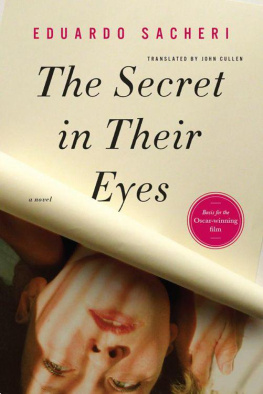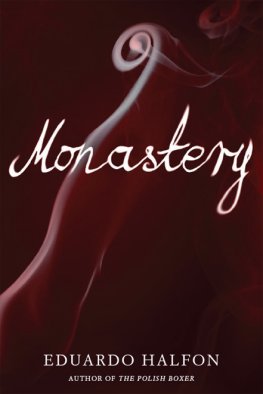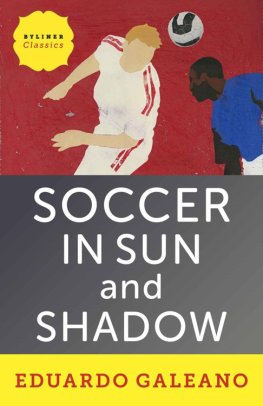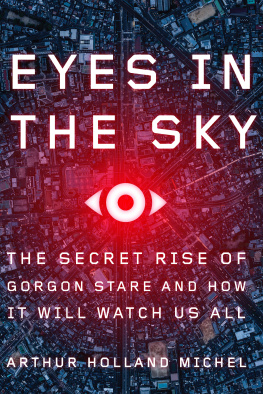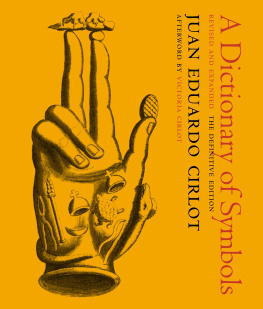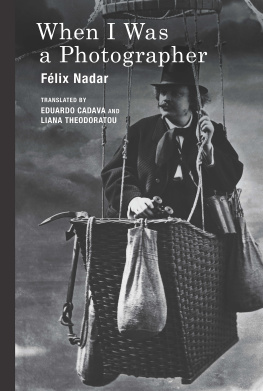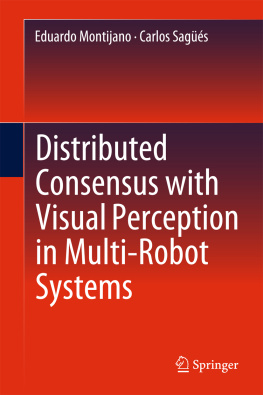Eduardo Sacheri - The Secret in Their Eyes
Here you can read online Eduardo Sacheri - The Secret in Their Eyes full text of the book (entire story) in english for free. Download pdf and epub, get meaning, cover and reviews about this ebook. year: 2011, publisher: Other Press, genre: Detective and thriller. Description of the work, (preface) as well as reviews are available. Best literature library LitArk.com created for fans of good reading and offers a wide selection of genres:
Romance novel
Science fiction
Adventure
Detective
Science
History
Home and family
Prose
Art
Politics
Computer
Non-fiction
Religion
Business
Children
Humor
Choose a favorite category and find really read worthwhile books. Enjoy immersion in the world of imagination, feel the emotions of the characters or learn something new for yourself, make an fascinating discovery.
- Book:The Secret in Their Eyes
- Author:
- Publisher:Other Press
- Genre:
- Year:2011
- Rating:5 / 5
- Favourites:Add to favourites
- Your mark:
- 100
- 1
- 2
- 3
- 4
- 5
The Secret in Their Eyes: summary, description and annotation
We offer to read an annotation, description, summary or preface (depends on what the author of the book "The Secret in Their Eyes" wrote himself). If you haven't found the necessary information about the book — write in the comments, we will try to find it.
The Secret in Their Eyes — read online for free the complete book (whole text) full work
Below is the text of the book, divided by pages. System saving the place of the last page read, allows you to conveniently read the book "The Secret in Their Eyes" online for free, without having to search again every time where you left off. Put a bookmark, and you can go to the page where you finished reading at any time.
Font size:
Interval:
Bookmark:


Copyright 2005 Eduardo Sacheri
Originally published in Spanish as La pregunta de sus ojos
Translation copyright 2011 John Cullen
Production Editor: Yvonne E. Crdenas
All rights reserved. No part of this publication may be reproduced or transmitted in any form or by any means, electronic or mechanical, including photocopying, recording, or by any information storage and retrieval system, without written permission from Other Press LLC, except in the case of brief quotations in reviews for inclusion in a magazine, newspaper, or broadcast. For information write to Other Press LLC, 2 Park Avenue, 24th Floor, New York, NY 10016.
Or visit our Web site: www.otherpress.com
The Library of Congress has cataloged the printed edition as follows:
Sacheri, Eduardo A. (Eduardo Alfredo), 1967
[Pregunta de sus ojos. English]
The secret in their eyes / by Eduardo Sacheri; translated by John Cullen.
p. cm.
Originally published in Spanish as La pregunta de sus ojos.
eISBN: 978-1-59051-451-1
1. DetectivesArgentinaBuenos AiresFiction.
2. MurderInvestigationFiction. 3. Buenos Aires
(Argentina)Fiction. I. Cullen, John, 1942- II. Title.
PQ7798.29.A314P7413 2011
863.7dc22
2011013294
PUBLISHERS NOTE:
This is a work of fiction. Names, characters, places, and incidents either are the product of the authors imagination or are used fictitiously, and any resemblance to actual persons, living or dead, events, or locales is entirely coincidental.
v3.1
To my grandmother Nelly
for teaching me
how valuable it is
to preserve and share
memories.
At the time of the novel, the Argentine judiciary was divided into two jurisdictions, investigative courts and sentencing courts. Judgesexamining magistratespresided over investigative courts, and every judges court comprised two clerks offices. A clerk employed about eight people, of whom the second in command was the deputy clerk and chief administrator, the position held by this novels protagonist, Benjamn Chaparro.
A period of great turbulence in Argentina culminated in the so-called Guerra Sucia, the Dirty War, which lasted from 1976 to 1983. During these years, the Argentine state was the chief sponsor of massive and systematic political violence, whose victims included not only members of armed guerrilla groups such as the Montoneros, but also students, activists, trade unionists, teachers, journalists, and leftists in general. In such an unstable and dangerous environment, even the basically apolitical Chaparro is at risk. State terrorism in Argentina during the Dirty War resulted in the disappearance of at least 13,000 people; some estimates run as high as 30,000.
B enjamn Miguel Chaparro stops short and decides hes not going. Hes not going, period. To hell with all of them. Even though hes promised to be there, and even though theyve been planning the party for three weeks, and even though theyve reserved a table for twenty-two at El Candil, and even though Bentez and Machado have announced their willingness to come from the ends of the earth to celebrate the dinosaurs retirement.
He halts so suddenly that the man walking behind him on Talcahuano toward Corrientes barely manages to avoid a collision, dodging past with one foot on the sidewalk and one on the street. Chaparro hates these narrow, noisy, light-deprived sidewalks. Hes walked on them for forty years, but he knows hes not going to miss them after Monday. Not the sidewalks and not a great many other things in this city, where hes never felt at home.
He cant disappoint his colleagues. He must go, if only because Machado is coming all the way from Lomas de Zamora just for the occasion, despite his bad health and advanced age. And Bentez likewise. Its not a terribly long way from the Palermo neighborhood to Tribunales, but the fact is that the poor old guys pretty much a wreck. Nevertheless, Chaparro doesnt want to go. Hes sure about very few things, but this is one of them.
He looks at himself in the window of a bookstore. Sixty years old. Tall. Gray-haired. Aquiline nose, thin face. Shit, he feels obliged to conclude. He scrutinizes the reflection of his eyes in the glass. A girlfriend he had when he was young used to make fun of his compulsive way of looking at himself in shop windows. Chaparro never confessed the truth, neither to her nor to any of the other women who passed through his life: his habit of gazing at his own reflection has nothing to do with self-love or self-admiration; its never been anything but another attempt to figure out who the hell he is.
Thinking about that makes him even sadder. He sets out again, as if motion could save him from being pricked by the barbs of this new, additional sadness. From time to time, walking without haste on that sidewalk forever untouched by the afternoon sun, he checks himself in the shop windows. Now he sees the sign for El Candil, up there on the left, across the street and thirty meters on. He looks at his watch: 1:58. Almost all of them must be there by now. He himself sent off the people in his department at 1:20 so they wouldnt have to run. The coming court session doesnt begin until next month, and theyve already closed and archived the cases from the previous session. Chaparro is satisfied. Theyre good kids. They work hard and learn quickly. The next thought in the sequence is Im going to miss them, and as Chaparro refuses to squelch around in nostalgia, he comes to a stop again. This time, theres no one behind to crash into him, and the people coming his way are able to navigate around the tall man in the blue blazer and gray trousers whos now looking at himself in the window of a lottery office.
He turns around. Hes not going. Hes definitely not going. Maybe, if he hurries, he can catch the judge before she leaves for the restaurant, because he knows she stayed behind to finish an order for someones release from preventive detention. Its not the first time the idea has occurred to him, but it is the first time hes summoned the modicum of courage needed to act on the idea. Or maybe its just that the other prospectthe prospect of attending his own retirement luncheoncorresponds to his notion of hell, and he wants to avoid infernal torments. Him, sitting at the head of the table? With Bentez and Machado beside him, forming a trio of venerable mummies? Listening to that pathetic de lvarez pose his traditional questionLets do it Roman style, all right?so that he can spread around the cost of some high-end wine and knock back most of it himself? Or Laura, asking everybody in sight to split a portion of cannelloni with her so she wont stray too far from the diet she just started last Monday? Or Varela, meticulously descending into his trademark alcoholic melancholy, which will move him to tears as he embraces friends, acquaintances, and waiters? These nightmarish images make Chaparro increase his pace. He goes up the courthouse steps from Talcahuano Street. They havent closed the main door yet. He jumps into the first available elevator. Theres no need for him to tell the operator hes going to the fifth floor; in the Palace of Justice, the very stones know him.
With resolute steps, the soles of his tan loafers resounding on the black and white floor tiles, he walks along the corridor parallel to Tucumn Street until he stands before the tall, narrow door of his court. He hesitates mentally over the possessive his. Yes, why not? Its his, it belongs to him much more than to Garca, the clerk, or to any of the other clerks who preceded Garca, or to any of those wholl succeed him.
Font size:
Interval:
Bookmark:
Similar books «The Secret in Their Eyes»
Look at similar books to The Secret in Their Eyes. We have selected literature similar in name and meaning in the hope of providing readers with more options to find new, interesting, not yet read works.
Discussion, reviews of the book The Secret in Their Eyes and just readers' own opinions. Leave your comments, write what you think about the work, its meaning or the main characters. Specify what exactly you liked and what you didn't like, and why you think so.

